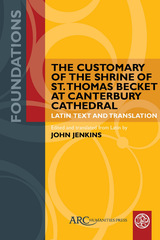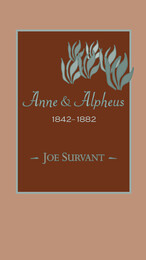
Chosen by Rachel Hadas as the winner of the Arkansas Poetry Award, Anne & Alpheus: 1842–1882 is a compelling duet of monologues between a frontier man and woman surviving the hardships and recording the small triumphs of life in rural nineteenth-century Kentucky.
Ambitious in breadth and scope, these poems chart the loves and losses of early marriage, the terrors of civilian life during the Civil War, and the universal sorrows of aging, loneliness, and death. Through the distinct voices of Anne and Alpheus Waters, Joe Survant has fashioned a collection with all the sweep of a novel, all the dramatic intensity, poem by poem, of short fiction, and all the earthy, human lyricism of the dramatic monologue. These poems take us into the tobacco sheds, put us behind the plow, let us smell the soil, and
carry us under the stars where Anne and Alpheus walked.
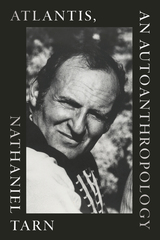
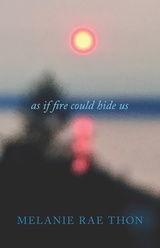
As If Fire Could Hide Us explores the expansiveness of consciousness and compassion through and beyond the human body.
A twelve-year-old girl slips out a basement window, steals a bike, and sets off on a perilous adventure. Injured and slowly bleeding out, Orelia enters a vast, spectacularly animate environment where she senses the limits of self disintegrating, her being entangled with the forest.
A prison guard and member of the strap down team witnesses a painfully prolonged execution and is delivered to a heart-cracking sense of identification with the ones he’s killed. Every grieving mother is his own. Any man might be himself, his closest friend, his brother.
An organ donor’s body is restored and resurrected through the bodies of multitudes. Spiritually and physically, one human being becomes many. Everything in the cosmos is intertwined and interchangeable. Embracing this awareness may bring fear or euphoria—desolation, peace, despair, rapture.
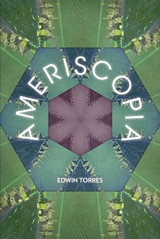
Ameriscopia reimagines New York City and its expansive inspirations, which for Torres capture the contradictions of America. Allusions to the Twin Towers, Coney Island hot dogs, and the Nuyorican Poet’s Cafe continuously recolor the pages. But even as he makes these iconic references, Torres allows his poems to invert and refract the identities they evoke—New-Yorker-American-Latino-Dad-Performer-Boy-Writer—to invigorate poetry out of its slumber into a deep cultural urgency. Torres’s kaleidoscopic vision is borne of decades of poetic experimentation. Audiences have delighted in his spontaneous mashups of disparate topic matters; writers have studied his skilled technique at synthesizing—for example, from a mundane curbside view to an imagined conversation with artists Marcel Duchamp and Yves Tanguy.
Torres writes, “I discovered that, this world uncovered / is like the soul / of The Puerto Rican man — occupied / by the weight of his balance.” Ameriscopia is Torres’s statement on growing up and the inspirational facets that accompany his journey into fatherhood. From conversations in cars to fast-beat lullabies, Torres’s poetry taps into rhythms both distinctive and dynamic. In Ameriscopia Torres is at full force, a poet in control, a writer emboldened by the page—in flight.
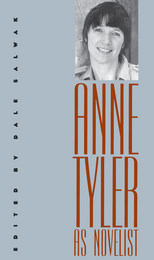
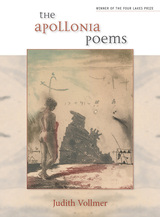
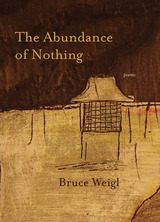
Finalist, 2013 Pulitzer Prize for Poetry
Throughout his award-winning career, Bruce Weigl has proven himself to be a poet of extraordinary emotional acuity and consummate craftsmanship. In The Abundance of Nothing, these qualities are on full display, animating and informing poems that combine rich, metaphoric imagery with direct, powerful language. Deftly weaving history and everyday experience, Weigl transports readers from the front lines of the Vietnam War and all the tangled cultural and emotional scenes of that time to the slow winds of the American Midwest that softly ease the voice of the veteran returning home. Though the poems struggle with themes of mortality and illness, violence and forgiveness, the poet’s voice never wavers in its meditative calm, poise, and compassion. Elegiac yet agile, ethereal yet embodied, The Abundance of Nothing is a work of searching openness, generous insight, and remarkable grace.
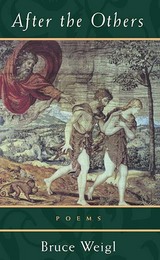
In his twelfth volume of poetry, Bruce Weigl continues his quest for emotional and spiritual enlightenment. Quiet and moving, these poems combine an intimate voice with a searingly direct look at suffering and senseless violence, at human desire and love, and at man's relationship with nature.

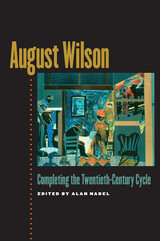
Just prior to his death in 2005, August Wilson, arguably the most important American playwright of the last quarter-century, completed an ambitious cycle of ten plays, each set in a different decade of the twentieth century. Known as the Twentieth-Century Cycle or the Pittsburgh Cycle, the plays, which portrayed the struggles of African-Americans, won two Pulitzer Prizes for Drama, a Tony Award for Best Play, and seven New York Drama Critics Circle Awards. August Wilson: Completing the Twentieth-Century Cycle is the first volume devoted to the last five plays of the cycle individually—Jitney,Seven Guitars, King Hedley II, Gem of the Ocean, and Radio Golf—and in the context of Wilson's entire body of work.
Editor Alan Nadel's May All Your Fences Have Gates: Essays on the Drama of August Wilson, a work Henry Louis Gates called definitive, focused on the first five plays of Wilson's cycle. This new collection examines from myriad perspectives the way Wilson's final works give shape and focus to his complete dramatic opus. It contains an outstanding and diverse array of discussions from leading Wilson scholars and literary critics. Together, the essays in Nadel's two volumes give Wilson's work the breadth of analysis and understanding that this major figure of American drama merits.
Contributors
Herman Beavers
Yvonne Chambers
Soyica Diggs Colbert
Harry J. Elam, Jr.
Nathan Grant
David LaCroix
Barbara Lewis
Alan Nadel
Donald E. Pease
Sandra Shannon
Vivian Gist Spencer
Anthony Stewart
Steven C. Tracy
Dana Williams
Kimmika L. H. Williams-Witherspoon
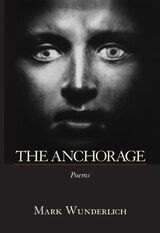
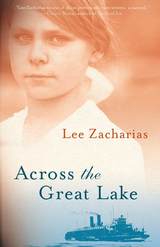
As his wife lies dying in the brutally cold winter of 1936, Henrik Halvorsen takes his daughter Fern away with him. He captains a great coal-fired vessel, the Manitou, transporting railroad cars across the icy lake. The five-year-old girl revels in the freedom of the ferry, making friends with a stowaway cat and a gentle young deckhand. The sighting of a ghost ship, though, presages danger for all aboard.

Looking back at a lifetime of rich experience from Wisconsin’s driftless hills
We all dream of finding the place we can be most ourselves, the landscape that seems to have been crafted just for us. The poet Paul Zimmer has found his: a farm in the driftless hills of southwestern Wisconsin, a region of rolling land and crooked rivers, "driftless" because here the great glaciers of the Patrician ice sheet split widely, leaving behind a heart-shaped area untouched by crushing ice. After the Fire is the story of Zimmer’s journey from his boyhood in the factory town of Canton, Ohio, and his days as a soldier during atomic tests in the Nevada desert, to his many years in the book business as a writer and publisher, and the rural tranquillity of his present life.
Zimmer juxtaposes timeless rustic subjects (tending the land, country people and their ways, the ever-changing beauty of his natural surroundings) with flashbacks to key moments: his first and only boxing match, hearing Count Basie play and discovering his lifelong love of jazz, his return to the France of his ancestors, his painful departure from the publishing world after forty years. These stories are full of humor and pathos, keen insights and poignant meditations, but the real center of the book is the abiding beauty of the driftless hills, the silence and peace that is the source of and reward for Zimmer’s hard-won wisdom. Above all, it is a meditation on the ways that nature provides deep meaning and solace, and a consideration of the importance of finding the right place.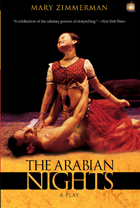
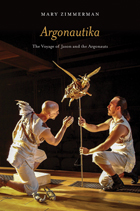
As in her Tony Award–winning Metamorphoses, Mary Zimmerman transforms Greek mythology—here the story of Jason and the Argonauts—into a mesmerizing piece of theater. Encountering an array of daunting challenges in their “first voyage of the world,” Jason and his crew illustrate the essence of all such journeys to follow—their unpredictability, their inspiring and overwhelming breadth of emotion, their lessons in the inevitability of failure and loss. Bursts of humor and fantastical creatures enrich a story whose characters reveal remarkable complexity. Medea is profoundly sympathetic even as the seeds are sown for the monstrous life ahead of her, and the brute strength of Hercules leaves him no less vulnerable to the vicissitudes of love. Zimmerman brings to Argonautika her trademark ability to encompass the full range of human experience in a work as entertaining as it is enlightening.
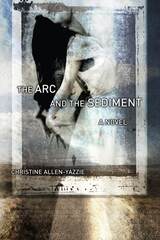
This tale, though dark and difficult, is infused with tart, twisted humor. Confused, disheveled, self-deprecating, and self-destructive, Gretta is also sharp and funny. Here, first-time novelist Christine Allen-Yazzie breaks apart her own narrative arc but with gritty reality seals it near-shut again, if in rearrangement, drawing us into Gretta's wrestling match with herself, her husband, her addiction, and the road.
The Arc and the Sediment received an honorable mention from the James Jones First Novel Competition, and it won the Utah Arts Council Annual Writing Competiton Publishing Prize.

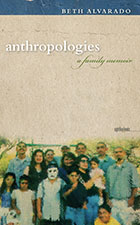
A vivid archive of memories, Beth Alvarado’s Anthropologies layers scenes, portraits, dreams, and narratives in a dynamic cross-cultural mosaic. Bringing her lyrical tenor to bear on stories as diverse as harboring teen runaways, gunfights with federales, and improbable love, Alvarado unveils the ways in which seemingly separate moments coalesce to forge a communal truth. Woven from the threads of distinct family histories and ethnic identities, Anthropologies creates a heightened understanding of how individual experiences are part of a larger shared fabric of lives.
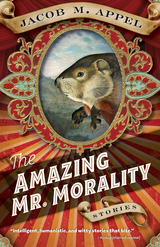
The Amazing Mr. Morality features tenacious men and women whose determination to buck middle-class social convention draws them toward unforeseen challenges. A failed television producer insists upon having a woodchuck relocated from his lawn, only to receive desperate letters in which the woodchuck begs to return. An overconfident ne’er-do-well obtains a lucrative lecture invitation intended for a renowned ornithologist and decides to deliver the speech himself. An innocuous dispute over whether to rename a local street opens up racial fault lines that prove deadly.
The collection concludes with the title novella in which two unscrupulous ethicists, writing rival newspaper columns, seek to unseat each other by addressing questions such as: If you’re going to commit a murder, is it worse to kill when the victim is sleeping or awake?
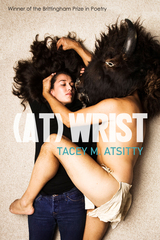
All I know is it’s the season

Lyrically enacting the cognitive dissonance and embodied contradictions of our contemporary age, Hadara Bar-Nadav’s The Animal Is Chemical collects innovative poems that straddle the frontiers of language and scientific knowledge. She brilliantly draws on her own experience as a medical editor and her family’s history of Holocaust survival to write into the hybrid legacy of Western medicine: part clinical empiricism, part human fallibility and moral bankruptcy. Displaying a robust formal range, these poems move from feverish elegies to drug-pamphlet erasures, tangible articulations of Bar-Nadav’s epigenetic, cultural, and memorial inheritance as a writer navigating chronic illness and pain. In these pages, Nazi medical experiments, pharmaceutical literature, and manifestations of intergenerational trauma collide in the lyrical archive of Bar-Nadav’s latest collection, winner of the 2022 Four Way Books Levis Prize in Poetry. Just as she illuminates the paradox of time — that we may think of the past as something gone and yet always present in context and legacy — Bar-Nadav proves the enduring ambivalence of pharmakon, that antidote which poisons us, the medicine that kills. This febrile, fierce book casts spells and confronts illusions, ignites grief and awe, and challenges our assumptions about what it means to heal our bodies, our families, and our shared histories. Perhaps this work fulfills the specious salvation it describes in its opening pages, performing an exorcism of truth-telling that harnesses the heat of a “myth in which a god sets us / on fire and then sets us free.”
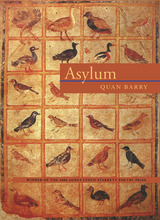
2002 finalist in poetry, Society of Midland Authors
Quan Barry’s stunning debut collection has been compared to Sylvia Plath’s Ariel for the startling complexity of craft and the original sophisticated vision behind it. In these poems beauty is just as likely to be discovered on a radioactive atoll as in the existential questions raised by The Matrix.
Asylum is a work concerned with giving voice to the displaced—both real and fictional. In "some refrains Sam would have played had he been asked" the piano player from Casablanca is fleshed out in ways the film didn’t allow. Steven Seagal, Yukio Mishima, Tituba of the Salem Witch Trials, and eighteenth-century black poet Phillis Wheatley also populate these poems.
Barry engages with the world—the Tuskegee syphilis experiments, the legacy of the Vietnam war—but also tackles the broad meditative question of the individual’s existence in relation to a higher truth, whether examining rituals or questioning, "Where is it written that we should want to be saved?" Ultimately, <I>Asylum</I> finds a haven by not looking away.

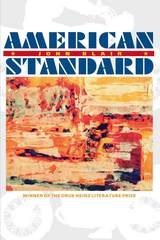
Selected by Elizabeth Hardwick
It is difficult to see what lurks beneath the surface of a muddy river, an alligator-infested lake, or a John Blair short story. The deep currents that drive a demure, devout, church-going woman to shoot her husband; the ripple effect of a midnight rendezvous at church youth camp that goes slightly—then horribly—askew; the sinkholes that can swallow Porsche dealerships—or marriages; what is dredged up in American Standard cannot easily be forgotten.
Set mostly in central Florida, Blair’s stories are filled with people living lives of disquieting longing and stubborn isolation. For them, this is the American standard, as ubiquitous and undistinguished as vitreous china bathroom fixtures.
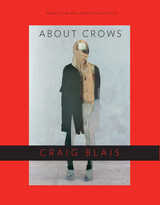
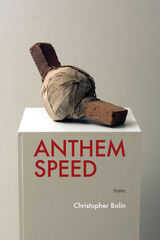
This collection evokes the vividly mysterious remnants of a lost civilization. Its preoccupations are unnervingly familiar: war, injustice, brutalization of land, air, water, and species, technologies of terror and dehumanization. Simultaneously antique and space-age, inhabiting a world of elemental rites and of artificial imaginations, Bolin tests the acoustics of operating rooms, battlefields, courtrooms, and mountainsides, and envisions—with animal acuity—a world imperiled and empowered by its leaders and myths.
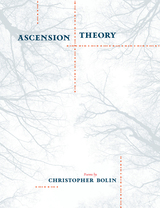
Bolin’s eye and mind are acutely tuned to the edges of broken objects and vistas, to the mysterious remnants out of which meaningful speech might be reconstituted. These poems unfold in a world of beautiful, crystalline absence, one that is nearly depopulated, as though encountered in the aftermath of an unnamed violence to the land and to the soul.
In poems of prodigious elegance and anxious control, Bolin evokes influences as various as Robert Frost, James Wright, Robert Hass, George Oppen, and Robert Creeley, while fashioning his own original and urgent idiom, one that both theorizes and tests the prospects of imaginative ascension, and finds “new locutions for referencing / sky.”
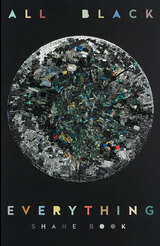
The political sublime of Caribbean poetics ebb and flood in this contagious new voice of borrowings, hijacking the trap house. This is an original collection, daring to assume the voice of the system and its death drives, having fun, mixing it up, throwing hands too. If old pirates rob I, then Shane Book has stolen back something from them. All Black Everything is a redemption song.
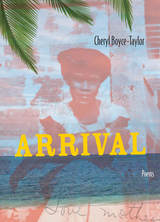
ARRIVAL is a poetic love story between mother and daughter. The poems are road maps, intertwining generations with a narrative beginning in 1950 with a woman who is pregnant with twins. In her seventh month she delivers a stillborn boy and a baby girl weighing less than two pounds. From there, the evocation of a series of catastrophic family events brings forth Cheryl Boyce-Taylor’s power to strip her readers down to their most vulnerable. Boyce-Taylor is steeped in the narratives of Trinidad and New York City, colored with metaphorical stew-pot images. She revels in her lyrical range as she weaves these poetic retellings of family, place, and identity.
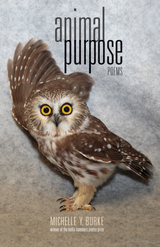
In Animal Purpose, Michelle Y. Burke explores the lives of men and women as they stand poised between the desire to love and the compulsion to harm. In one poem, a woman teaches a farmhand the proper way to slaughter a truckload of chickens. In another, a couple confronts the recent loss of a loved one when a stranger makes an unexpected confession in a crowded restaurant. Set in both rural and urban spaces, these poems challenge received ideas about work, gender, and place. Danger blurs into beauty and back again. Burke scours the hard edges of the world to find “fleeting softness,” which she wishes “into the world like pollen that covers everything.”


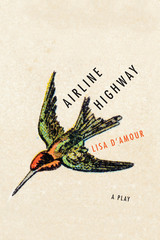
Airline Highway is a rollicking play that, with great insight, humor, and subtlety, examines a tight knit community of "outsiders" over the course of a single, legendary day. The Hummingbird Hotel is the figurative or literal home for a group of strippers, French Quarter service workers, hustlers, and poets who are bound together by their bad luck, bad decisions, and complete lack of pretense. Presiding over them is Miss Ruby, a beloved former burlesque performer who has requested a funeral before she dies. As the people whose lives she has touched gather to celebrate her, they must face themselves, each other, and the consequences of the choices they have made. Airline Highway shows us the tenuous hold that community, authenticity, and real-time ritual have on a rapidly gentrifying New Orleans.
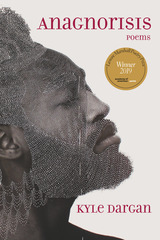
In Anagnorisis: Poems, the award-winning poet Kyle Dargan ignites a reckoning. From the depths of his rapidly changing home of Washington, D.C., the poet is both enthralled and provoked, having witnessed-on a digital loop running in the background of Barack Obama's unlikely presidency—the rampant state-sanctioned murder of fellow African Americans. He is pushed toward the same recognition articulated by James Baldwin decades earlier: that an African American may never be considered an equal in citizenship or humanity.
This recognition—the moment at which a tragic hero realizes the true nature of his own character, condition, or relationship with an antagonistic entity—is what Aristotle called anagnorisis. Not concerned with placatory gratitude nor with coddling the sensibilities of the country's racial majority, Dargan challenges America: "You, friends- / you peckish for a peek / at my cloistered, incandescent / revelry-were you as earnest / about my frostbite, my burns, / I would have opened / these hands, sated you all."
At a time when U.S. politics are heavily invested in the purported vulnerability of working-class and rural white Americans, these poems allow readers to examine themselves and the nation through the eyes of those who have been burned for centuries.

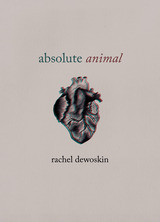
Experimenting with time, language, and transgressing boundaries, the poems in absolute animal lean into Nabokov’s notion that precision belongs to poetry and intuition to science.
Rachel DeWoskin’s new collection navigates the chaos of societal and mortal uncertainty. Through formal poetry, DeWoskin finds sense amid disorder and unearths connections between the animal and the human, between the ancient and the contemporary, and between languages, incorporating translations from poems dating as far back as the Tang dynasty. From sonnet sequences about heart surgeries to examinations of vole romance and climate change, absolute animal investigates and moves across boundaries and invites us to consider what holds life, what lasts, what dies, and what defines and enriches the experience of being human.
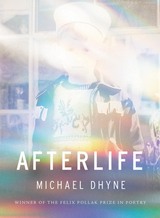
“If I tell the story in reverse, / it still ends with nothing,” he writes. Yet it is in the telling that Dhyne’s story—and the world he creates—is filled. The echoes of his childhood loss reverberate through adolescence and adulthood, his body, the bodies of those he loves, and the world around them—from Bourbon Street to dark and lonely bedrooms, from grief support groups to heartachingly beautiful sunsets.
How we are shaped by our experiences, and how we refuse to be shaped, is at the heart of the poet’s search for memory, meaning, and love—in all its forms and wonders. This bold and tender debut is a rousing reminder that poetry and art can heal.
Can I start with my birth? and I ask her if anything happened
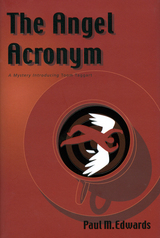
Finding the church archivist dead in the temple complex was somewhat awkward for the RLDS church hierarchy. What was the archivist doing in the temple in the middle of the night and what was he doing with President Fred M. Smith’s declaration of supreme directional control?
For the public relations department, this was all a day’s work—something not so very difficult to explain away with a few carefully worded phrases. That would have been that, had the director of church education, erstwhile philosopher Toom Taggart, not smelled something rotten on the second floor.
Alternately suspenseful and humorous, The Angel Acronym romps through the corridors of religious orthodoxy and the pages of history to probe the perplexities of religious truth, public image, and a bureaucratic mindset.

Jacob “Jake” Cohen, the fast-talking patriarch, is one of a generation of financiers who made hundreds of millions of dollars in the cutthroat taxi medallion industry in the early 2000s, largely by preying on the hopes and dreams of impoverished immigrant drivers. As Jake tries to stop the bleed from the debt crisis now plaguing his company, clawing back his assets from an increasingly dangerous coterie of Russian American associates, Rudy gets promoted from doorman to errand boy to bodyguard to something like Jake’s right-hand man.
By turns a gripping portrait of corruption and a tender family dramedy, Atta Boy combines the urban cool of Richard Price with the glossy, uptown charm of Taffy Brodesser-Akner. Here is a novel richly attuned to its time and place, but with something for everyone—high-wire prose and a story wedding ripped from the headlines, social realism with the warmth, angst, and humor of its indelible voices.
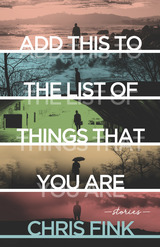
Many of the narratives center on the melancholic dislocations of Midwestern men—dislocations provoked by forces ranging from the unknown terrain of travel to emerging romantic relationships. Fink's gift for voice and keen observation of place display the male psyche against unfamiliar backgrounds in high relief. These quiet, often introspective stories pack an outsized punch.
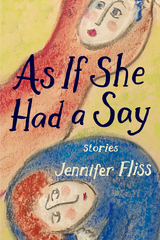
Who has a right to tell us how to experience our grief? How to perform—or not perform—the roles society prescribes to us based on our various points of identity?
As If She Had a Say, the second story collection from Jennifer Fliss, uses an absurdist lens to showcase characters—predominantly women—plumbing their resources as they navigate misogyny, abuse, and grief. In these stories, a woman melts in the face of her husband’s cruelty; a seven-tablespoons-long woman lives inside a refrigerator and engages in an affair with the man of the house; a balloon-animal artist attends a funeral to discover he was invited as more than entertainment; and a man loses all his nouns.
Fans of Karen Russell and Carmen Maria Machado will appreciate how As If She Had a Say’s inventive narratives expose inequities by taking us on imaginative romps through domesticity and patriarchal expectations. Each story functions as a magnifying glass through which we might examine our own lives and see ourselves more clearly.
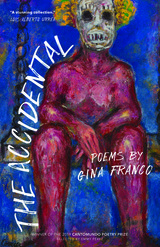
Cascading through each of the poems in Gina Franco’s The Accidental is a question: What does it mean to be human in a world where the soul is exalted but the body brutalized? Franco explores the terrain of the borderlands—not just the physical space of the American southwest, but the spaces where lines are drawn between body and soul, God and self, violence and ecstasy. Unfolding along these borders in a torrent of deep contemplation, Franco’s poems bring the reader to the line between accident and choice, delving into the role each plays in creating the lives we are born into and in determining how those lives end. A body caught in a tree after a flood—an accident—calls to mind deliberate violences: crucifixion and lynching.
Guided, even so, by a stark hopefulness, The Accidental makes a character of the soul and traces its pilgrimage from suffering toward transcendence. “The soul saw,” Franco writes, “that it saw through the wound.” This book tenders a creation myth steeped in existential philosophy and shimmering with the vernacular of the ecstatic.
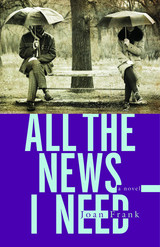
Because of course she feels what he feels. . . . People their age natter along not copping to it but the awareness is billboarded all over their faces—a wavering, a hesitation, even those who used to crow and jab the air. The tablecloth of certainty, with all its sparkly settings, has been yanked, and not artfully. It's why people drink.
All The News I Need probes the modern American response to inevitable, ancient riddles—of love and sex and mortality.
Frances Ferguson is a lonely, sharp-tongued widow who lives in the wine country. Oliver Gaffney is a painfully shy gay man who guards a secret and lives out equally lonely days in San Francisco. Friends by default, Fran and Ollie nurse the deep anomie of loss and the creeping, animal betrayal of aging. Each loves routine but is anxious that life might be passing by. To crack open this stalemate, Fran insists the two travel together to Paris. The aftermath of their funny, bittersweet journey suggests those small changes, within our reach, that may help us save ourselves—somewhere toward the end.
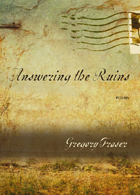
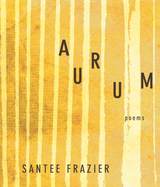
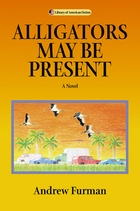
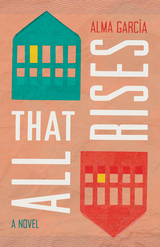
What follows is a story in which mysteries are unraveled, odd alliances are forged, and the boundaries between lives blur in destiny-changing ways—all in a place where the physical border between two countries is as palpable as it is porous, and the legacies of history are never far away. There are no easy solutions to the issues the characters face in this story, and their various realities—as undocumented workers, Border Patrol agents, the American supervisor of a Mexican factory employing an impoverished workforce—never play out against a black-and-white moral canvas. Instead, they are complex human beings with sometimes messy lives who struggle to create a place for themselves in a part of the world like no other, even as they are forced to confront the lives they have made.
All That Rises is about secrets, lies, border politics, and discovering where you belong—within a family, as well as in the world beyond. It is a novel for the times we live in, set in a place many people know only from the news.
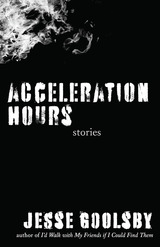
2020 Foreword INDIE awards, longlist
From the author of the critically-acclaimed novel, I’d Walk with My Friends If I Could Find Them, Jesse Goolsby’s Acceleration Hours is a haunting collection of narratives about families, life, and loss during America’s twenty-first-century forever wars. Set across the mountain west of the United States, these fierce, original, and compelling stories illuminate the personal search for human connection and intimacy. From a stepfather’s grief to an AWOL soldier and her journey of reconciliation to a meditation on children, violence, and hope, Acceleration Hours is an intense and necessary portrayal of the many voices living in a time of perpetual war.
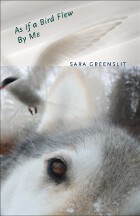
“The world is full of continuous conversations: Now is surrounded by Past, and both are encircled by Forever.” So states an unnamed narrator in As if a Bird Flew by Me.
Celia lives in the contemporary Midwest. Ann is an accused witch, executed during the Salem witch trials. Two women separated by time and place yet yoked by heritage and history. Set in three time periods, stories within stories unfold, and Greenslit’s language seamlessly weaves Celia’s modern life with the historical record of Ann’s demise alongside dazzling renderings of animal life. Greenslit’s hybrid of fiction and nonfiction occupies that rarest of airs: it is a book that illuminates, line by line and page by page, how it should be read.

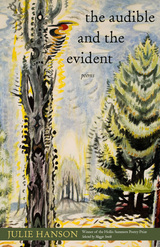
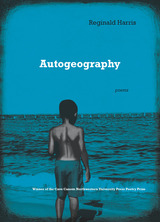
In his second collection of poetry, Reginald Harris traverses real and imagined landscapes, searching for answers to the question “What are you?” From Baltimore to Havana, Atlantic City to Alabama—and from the broad memories of childhood to the very specific moment of Marvin Gaye singing at the 1983 NBA All-Star Game shortly before his death—this is a travel diary of internal and external journeys exploring issues of race and sexuality. The poet traveler falls into and out of love and lust, sometimes coupled, sometimes alone. Autogeography tracks how who you are changes depending on where you are; how where you are and where you’ve been determine who you are and where you might be headed.
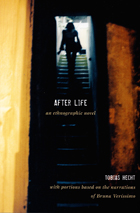
Hecht had originally intended to write a biography of Veríssimo. But with interviews ultimately spanning a decade, he couldn't ignore that much of what he had been told wasn’t, strictly speaking, true. In Veríssimo’s recounting of her life, a sister who had never been born died tragically, while the very same rape that shattered the body and mind of an acquaintance occurred a second time, only with a different victim and several years later. At night, with the anthropologist’s tape recorder in hand, she became her own ethnographer, inventing informants, interviewing herself, and answering in distinct voices.
With truth impossible to disentangle from invention, Hecht followed the lead of Veríssimo, his would-be informant, creating characters, rendering a tale that didn’t happen but that might have, probing at what it means to translate a life into words.
A call and response of truth and invention, mental illness and yearning, After Life is a tribute to and reinterpretation of the Latin American testimonio genre. Desire, melancholy, longing, regret, and the hunger to live beyond the confines of past and future meet in this debut novel by Tobias Hecht.
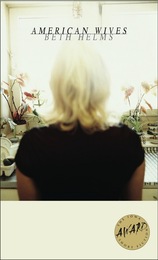
In Beth Helms's American Wives, winner of the 2003 Iowa Short Fiction Award, the women inhabit familiar roles—military wife, wealthy widow, devoted mother, lifetime companion. Yet despite their ordinary appearances, these women have deep secrets hidden beneath the thin veneer of duty, devotion, and privilege.
Set in both the United States and abroad, American Wives is about hope and disappointment, failure and resignation, desire and, occasionally, joy. A military wife abroad has a brief and totally unexpected sexual encounter; a wife watches as her husband, obsessed with the au-pair, has an affair instead with her best friend; a young woman finds herself destined to repeat the patterns of her mother's long-hidden infidelities. At the heart of each encounter is the overwhelming need to connect with others“whether they be lovers, spouses, friends, or family”while balancing personal desires. Too often, Helms's characters discover that being true to oneself means sacrificing the ones we love most.
As each woman seeks control of her life, we are reminded of the ultimate hope and possibility that can be found within our most intimate relationships. In subtle, yet convincing prose, Helms beautifully reveals the emotional depths that are reached in moments of true despair and longing.
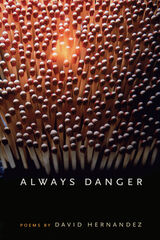
Always Danger offers a lyrical and highly imaginative exploration into the hazards that surround people’s lives—whether it’s violence, war, mental illness, car accidents, or the fury of Mother Nature. In his second collection of poems, David Hernandez embraces the element of surprise: a soldier takes refuge inside a hollowed-out horse, a man bullies a mountain, and a giant pink donut sponsors age-old questions about beliefs. Hernandez typically eschews the politics that often surround the inner circle of contemporary literature, but in this volume he quietly sings a few bars with a political tone: one poem shadows the conflict in Iraq, another reflects our own nation’s economic and cultural divide. Always Danger parallels Hernandez’s joy of writing: unmapped, spontaneous, and imbued with nuanced revelation.
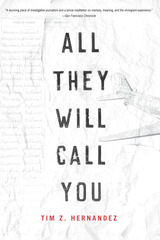
All They Will Call You is the harrowing account of “the worst airplane disaster in California’s history,” which claimed the lives of thirty-two passengers, including twenty-eight Mexican citizens—farmworkers who were being deported by the U.S. government. Outraged that media reports omitted only the names of the Mexican passengers, American folk icon Woody Guthrie penned a poem that went on to become one of the most important protest songs of the twentieth century, “Plane Wreck at Los Gatos (Deportee).” It was an attempt to restore the dignity of the anonymous lives whose unidentified remains were buried in an unmarked mass grave in California’s Central Valley. For nearly seven decades, the song’s message would be carried on by the greatest artists of our time, including Pete Seeger, Dolly Parton, Bruce Springsteen, Bob Dylan, and Joan Baez, yet the question posed in Guthrie’s lyrics, “Who are these friends all scattered like dry leaves?” would remain unanswered—until now.
Combining years of painstaking investigative research and masterful storytelling, award-winning author Tim Z. Hernandez weaves a captivating narrative from testimony, historical records, and eyewitness accounts, reconstructing the incident and the lives behind the legendary song. This singularly original account pushes narrative boundaries, while challenging perceptions of what it means to be an immigrant in America, but more importantly, it renders intimate portraits of the individual souls who, despite social status, race, or nationality, shared a common fate one frigid morning in January 1948.
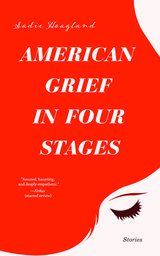
American Grief in Four Stages is a collection of stories that imagines trauma as a space in which language fails us and narrative escapes us. These stories play with form and explore the impossibility of elegy and the inability of our culture to communicate grief, or sympathy, outside of cliché.
One narrator, for example, tries to understand her brother’s suicide by excavating his use of idioms. Other stories construe grief and trauma in much subtler ways—the passing of an era or of a daughter’s childhood, the seduction of a neighbor, the inability to have children. From a dinner party with Aztecs to an elderly shut-in’s recollection of her role in the Salem witch trials, these are stories that defy expectations and enrich the imagination. As a whole, this collection asks the reader to envisage the ways in which we suffer as both unbearably painful and unbearably American.
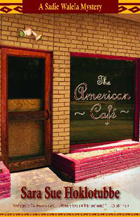
When Sadie Walela decides to pursue her childhood dream of owning a restaurant, she has no idea that murder will be on the menu.
In this second book in the Sadie Walela series, set in the heart of the Cherokee Nation, Sadie discovers life as an entrepreneur is not as easy as she anticipated. On her first day, she is threatened by the town’s resident "crazy" woman and the former owner of the American Café turns up dead, engulfing the café—and Sadie herself—in a cloud of suspicion and unanswered questions.
Drawing on the intuition and perseverance of her Cherokee ancestry, Sadie is determined to get some answers when an old friend unexpectedly turns up to lend a hand. A diverse cast of characters—including a mysterious Creek Indian, a corrupt police chief, an angry Marine home from Iraq, and the victim’s grieving sister and alcoholic niece—all come together to create a multilayered story of denial and deceit.
While striving to untangle relationships and old family secrets, Sadie ends up unraveling far more than a murder.
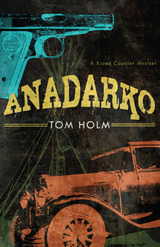
J.D. and Hoolie find their simple missing person case hides a web of murder, graft, and injustice tied to a network of bootleggers with links to the Ku Klux Klan. Set in the aftermath of the violent Tulsa race riot of 1921, Anadarko reveals a deadly and corrupt town filled with a toxic cocktail of booze, greed, and bigotry.
Tackling racial prejudice head-on, author Tom Holm expertly weaves a vivid and suspenseful tale set in Prohibition-era Indian Country. This gritty whodunit shows nothing is ever simple in the fight between good and evil.

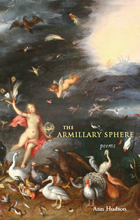
Taking the warp of dream, sometimes nightmare, and weaving it with the ordinary world, the poems of The Armillary Sphere, Ann Hudson’s award-winning debut collection, do not simplify the mystery but deepen it. Just as the interlocking rings of the armillary sphere of the title represent the great circles of the heavens, so do the poems herein demonstrate out of the beautiful, the extraordinary, and the cast off, a fresh scaffolding, a new way to see out from the center of our selves, a new measure of our relationship to the things of this world and the next.
Chosen from hundreds of manuscripts as this year’s winner of the Hollis Summers Poetry Prize, Ann Hudson’s The Armillary Sphere possesses, in the words of final judge Mary Kinzie,
“… a brightness of spirit and quickness of thought that are conveyed with extraordinary care as she frames moments of experience. Her style is unobtrusive—no fireworks of phrasing obscure the thing felt and seen. So simple a device as taking an intransitive verb transitively can shed strong light on the moment: “A fine sheen /of sweat glistens the cocktail glasses,”—and Hudson studies emotions with a brave restraint that resists cliché, while deftly joining together intuitions that bring contradictory or opposing charge.… Both circular and digressive, Hudson’s portrayal of beings of all ages poised on their varying thresholds brings a novelist’s sense of details unfolding into their future under the control of a fine poet’s pure and condensed language of likeness.”Insomnia
If you were awake too, I’d tell you
the whole story, how I dreamt
we never saw the child, how easily
we forgot. Instead I shuffle
to the porch to watch
traffic pass the house
and an occasional bat dive
under the streetlamps, ruthless
after its dark targets.
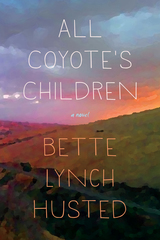
Still fragile, a bereft Annie returns to the ranch, where she is befriended by Leona, a Umatilla-Cayuse neighbor. Leona, as it turns out, has a long connection to the family that even Jack never knew about. At the time of his disappearance, Jack had been grappling with his family’s legacy—with the conflicts and consequences of white settlement of native ground. Three generations before he was born, the family ranch was taken from the Umatilla reservation through the Allotment Act. Jack’s mother died when he was six, but his father’s stern presence still cast a shadow on the land.
“Survival is hard sometimes,” Leona says, but with her help, Annie is able to bring Riley home from rehab and begin the work of healing their small family, learning, season by season, how to go on living without Jack. Leona, Riley’s friends Alex and Mattie, and old neighbors Gus and Audrey become a larger family for Annie as they share the stories that connect them—long-silenced stories from both cultures that could solve the mystery of Jack’s disappearance.
In prose that is lyrical and clear-eyed, All Coyote’s Children weaves an unforgettable tale of cultures and families caught in the inescapable web of who they are and what they have inherited.
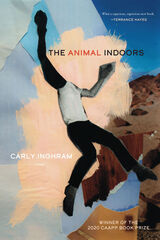
Carly Inghram’s poems explore the day-to-day experiences of a Black queer woman who is ceaselessly bombarded with images of mass-consumerism, white supremacy, and sexism, and who is forced, often reluctantly, back indoors and away from this outside chaos. The poems in The Animal Indoors seek to understand and define the boundaries between our inside and outside lives, critiquing the homogenization and increasing insincerity of American culture and considering what safe spaces exist for Black women. The speaker in these poems seeks refuge, working to keep the interior safe until we can reckon with the world outside, until the speaker is able to “unleash the indoor news onto the unclean water elsewhere.”
The Animal Indoors won the 2020 CAAPP Book Prize, selected by Terrance Hayes.
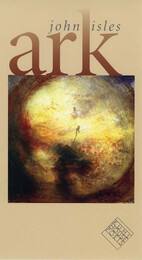
With its deft maneuvers through both a historical and an emotional landscape, Ark speaks to us with a truly contemporary voice of authoritative vulnerability while never faltering into sentimental digressions. This uncanny authority at the helm of our ark continually surprises us, unfolding its lyrical gems and treasures culled along the journey, letting us in on the inscrutable facts of this life.
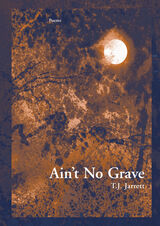
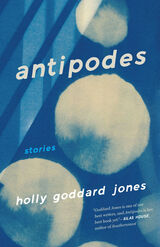
A harried and depressed mother of three young children serves on a committee that watches over the bottomless sinkhole that has appeared in her Kentucky town. During COVID lockdown, a thirty-four-year-old gamer moves back home with his parents and is revisited by his long-forgotten childhood imaginary friend. A politician running for a state congressional seat and a young mother, who share the same set of fears about the future, cross paths but don’t fully understand one another. A woman attends a party at the home of a fellow church parishioner and discovers she is on the receiving end of a sales pitch for a doomsday prepper.
These stories and more contemplate our current reality with both frankness and hard-earned hopefulness, realism and fabulism, tackling parenthood, environment, and the absurd-but-unavoidable daily toil of worrying about mundane matters when we’ve entered “an era of unknowability, of persistent strangeness.”
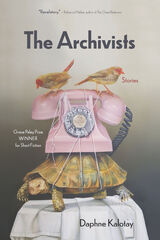
Longlisted for the 2024 Joyce Carol Oates Prize
Longlisted for the 2024 Massachusetts Book Award
The characters in The Archivists are everyday people, but when private losses or the shocks of history set their worlds reeling, they find connection and liberation in surprising, buoyant ways. Winner of the Grace Paley Prize for Short Fiction, this vibrant collection brings transcendence, wry humor, and a touch of the uncanny to life’s absurdities and catastrophes—whether the 2008 economic crash, fallout after the 2016 presidential election, gentrification, pandemic lockdown, illness, or the intergenerational impacts of the Holocaust and Communist occupation of Eastern Europe.
A hardheaded realist is confronted by both her mortality and a would-be wizard. A thirteen-year-old girl in 1950s Toronto infiltrates the ranks of Bell Canada. A ninety-nine-year-old woman appears to be invincible. A group hikes in Germany, and a solitary woman is pursued on a walk in New Mexico. These deeply moving stories ingeniously consider issues of identity, history, and memory and our shared search for meaning in an off-kilter world.
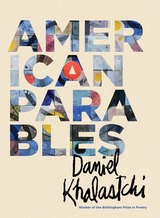
Through unnerving gallows humor and radical honesty, these poems redefine the American experience by asking the reader to consider what it means to live in the shadow of a perceived sense of freedom and to have faith when believing feels hopeless. Khalastchi's perspective as an Iraqi Jewish American brings sharp focus to the holistic uncertainties of religion, politics, assimilation, illness, love, and loss—with absurd, visceral, and wry acclaim.
the internet your high school
has the flu. We are sick
everyone is fine.
—Excerpt from "First Generation: Our Escape"
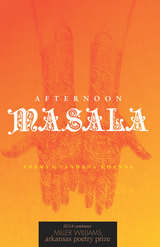
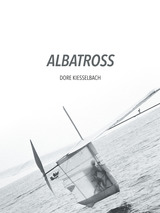
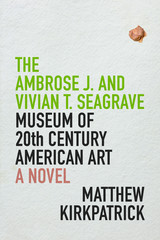
A strange museum, an even stranger curator, the deceased artist who haunts him, and the mystery surrounding the museum founders’ daughter, lost at sea as a child . . . The Ambrose J. and Vivian T. Seagrave Museum of 20th Century American Art is by turns a dark comedy, a ghost story, a romance, a whodunit, a family saga, and an exhibition catalog.
Through museum exhibit labels, as well as the interior musings of an elderly visitor wandering through its galleries, the novel’s numerous dramas gradually unfold. We learn of the powerful Seagrave family’s tragic loss of their daughter, the suspicious circumstances surrounding her disappearance during a violent storm, and of the motley conclave of artists (some accomplished, some atrocious) who frequented the Seagrave estate, producing eclectic bodies of work that betray the artists’ own obsessions, losses, and peculiarities. We learn about the curator’s rise to power, his love affair with a deeply troubled ghost—and when a first-time visitor to the museum discovers unexpected connections between the works on exhibit and her painful past, we are plunged into a meditation on the nature of perception, fabrication, memory, and time.
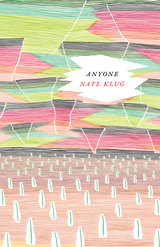
Where I-95 meets The Pike,
a ponderous thunderhead flowered—
stewed a minute, then flipped
like a flash card, tattered
edges crinkling in, linings so dark
with excessive bright
that, standing, waiting, at the overpass edge,
the onlooker couldn’t decide
until the end, or even then,
what was revealed and what had been hidden.
Using a variety of forms and achieving a range of musical effects, Nate Klug’s Anyone traces the unraveling of astonishment upon small scenes—natural and domestic, political and religious—across America’s East and Midwest. The book’s title foregrounds the anonymity it seeks through several means: first, through close observation (a concrete saw, a goshawk, a bicyclist); and, second, via translation (satires from Horace and Catullus, and excerpts from Virgil’s Aeneid). Uniquely among contemporary poetry volumes, Anyone demonstrates fluency in the paradoxes of a religious existence: “To stand sometime / outside my faith . . . or keep waiting / to be claimed in it.” Engaged with theology and the classics but never abstruse, all the while the poems remain grounded in the phenomenal, physical world of “what it is to feel: / moods, half moods, / swarming, then darting loose.”
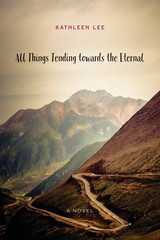
Traveling through China in 1989, not long after the Tiananmen Square massacre, Fanny hopes to make sense of her brother Bruno’s death in a motorcycle accident by finding a woman with whom he had exchanged letters. On her journey Fanny’s fate becomes entwined with a handsome British rogue, an American of Russian-Cuban descent returning to Tashkent, and two Chinese men—one who loves Charles Dickens, the other a budding, entrepreneurial con man—struggling to find their way in a country undergoing tumultuous transformation. Kathleen Lee’s debut novel explores the tension between the allure of the unfamiliar that draws us to distant lands and its unbidden tendency to reveal us to ourselves. With its rollicking sense of humor and slyly lyrical voice, as well as an extraordinary deftness in the rendering of place, All Things Tending towards the Eternal is an unforgettable ride.

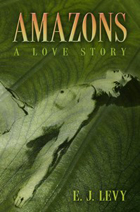
When E.J. Levy arrived in northern Brazil on a fellowship from Yale at the age of 21, she was hoping to help save the Amazon rain forest; she didn’t realize she would soon have to save herself.
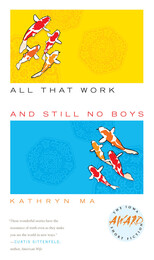
How do we survive our family, stay bound to our community, and keep from losing ourselves? In All That Work and Still No Boys, Kathryn Ma exposes the deepest fears and longings that we mask in family life and observes the long shadows cast by history and displacement.
Here are ten stories that wound and satisfy in equal measure. Ma probes the immigrant experience, most particularly among northern California’s Chinese Americans, illuminating for us the confounding nature of duty, transformation, and loss. A boy exposed to racial hatred finds out the true difference between his mother and his father. Two old rivals briefly lay down their weapons, but loneliness and despair won’t let them forget the past. A young Beijing tour guide with a terrible family secret must take an adopted Chinese girl and her American family to visit an orphanage. And in the prize-winning title story, a mother refuses to let her son save her life, insisting instead on a sacrifice by her daughter.
Intimate in detail and universal in theme, these stories give us the compelling voice of an exciting new author whose intelligence, insight, and wit impart a sense of grace to the bitter resentments and enduring ties that comprise family love. Even through the tensions Ma creates so deftly, the peace and security that come from building and belonging to one’s own community shine forth.
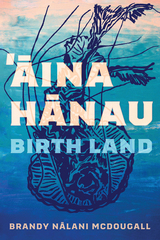
The poems in Āina Hānau / Birth Land cycle through sacred and personal narratives while exposing and fighting ongoing American imperialism, settler colonialism, militarism, and social and environmental injustice to protect the ʻāina and its people. The ongoing environmental crisis in Hawaiʻi, inextricably linked to colonialism and tourism, is captured with stark intensity as McDougall writes, Violence is what we settle for / because we’ve been led to believe / green paper can feed us / more than green land. The experiences of birth, motherhood, miscarriage, and the power of Native Hawaiian traditions and self-advocacy in an often dismissive medical system is powerfully narrated by the speaker of the titular poem, written for McDougall’s daughters.
‘Āina Hānau reflects on what it means to be from and belong to an ʻāina hānau, as well as what it means to be an ‘āina hānau, as all mothers serve as the first birth lands for their children.
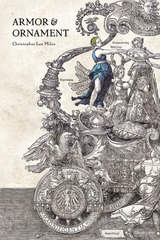
As a military veteran, Miles also centers his poetry amongst war. Through tone and voice, warfare permeates these poems, providing poetry that relies less on the traditional, Christian tension of doubt and shaken faith than on the inherent tension of a broken world. This resonant new collection melds deep-rooted spirituality with contemporary tensions, offering modern psalms for a tumultuous and uncertain age.
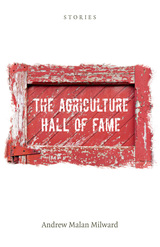
Presented in a triptych, the stories in Milward's debut collection range across a varied terrain, from tumbledown rural barns to modern urban hospitals, revealing the secrets contained therein.
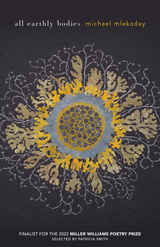
Finalist, 2022 Miller Williams Poetry Prize
From cities and cross-country bus rides to swamps and fern forests, Michael Mlekoday’s All Earthly Bodies celebrates the ungentrifiable, ungovernable wildness of life. This is anarchist ecology, nonbinary environmentalism, an earthbound theology against empire in all its forms. These poems ask how our lives and language, our prayers and politics, might evolve if we really listened to the world and its more-than-human songs.
“Sometimes I wish I could / peel myself from myself / without discarding the shell,” Mlekoday writes. Through a kind of lyric dreamwork, Mlekoday sounds the depths—of ancestry and identity, race and gender, earth and self—to track the unbecoming and re-membering of the body.

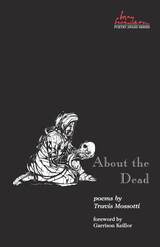
Travis Mossotti writes with humor, gravity, and humility about subjects grounded in a world of grit, where the quiet mortality of working folk is weighed. To Mossotti, the love of a bricklayer for his wife is as complex and simple as life itself: “ask him to put into words what that sinking is, / that shudder in his chest, as he notices / the wrinkles gathering at the corners of her mouth.” But not a whiff of sentiment enters these poems, for Mossotti has little patience for ideas of the noble or for sympathetic portraits of hard-used saints. His vision is clear, as clear as the memory of how scarecrows in the rearview, “each of them, stuffed / into a body they didn’t choose, resembled / your own plight.” His poetry embraces unsanctimonious life with all its wonder, its levity, and clumsiness. About the Dead is an accomplished collection by a writer in control of a wide range of experience, and it speaks to the heart of any reader willing to catch his “drift, and ride it like the billowed / end of some cockamamie parachute all the way / back to the soft, dysfunctional, waiting earth.”

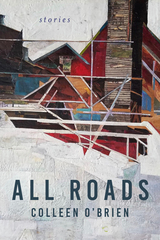
In “Charlie,” a new mother tells the story of her confusing attachment to a former mentor, uncovering the deep pain that has largely defined her life. In “The Fathers,” an awkward bachelor party leads to an unexpected moment of overdue connection between the bride’s father and brothers. The title story tracks the drunken monologue of a nihilistic middle-aged man attempting to seduce a young woman into a threesome, while “The Deal” alternates perspectives between a cynical divorced woman and her adult son, the only person with whom she’s been able to sustain a lasting relationship. Relentlessly self-revealing, these characters vacillate between vulnerability and self-protection, exposing the necessity of both. Dark, comic, and altogether unforgettable, All Roads introduces an original voice attuned to the docility of the stingray as well as the ancient spear of its tail.
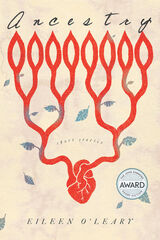
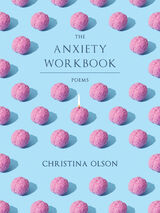
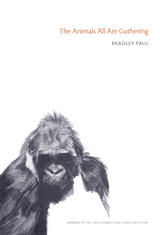
"In this original and wonderfully energetic book, Bradley Paul moves from humor to mockery to play to anger to grief, and sometimes all at once. This poetry shifts, it slams, it hammers, it thinks; it corrodes our sorrow and foolishness; it captures our national haplessness, sad and firing and still."
--Jean Valentine
"This is a book of 'Instructions,' a 'How To' book, a 'Guide' to the anarchic carnival of everyday life. It is a wicked book smelling of 'scrapple' and the 'puke of poetry.' And yet rising out of the bile is something else--call it a love for words and poetry--that can gleefully announce that 'a monkey could write this poem.' Read this book and you will lean 'how to stop your doppelganger from plagiarizing you,' which is exactly what you need to know to live in the twenty-first century." --John Yau
Bradley Paul’s work has appeared in American Poetry Review, Pleiades, Smartish Pace, Boston Review, and other journals. His first book of poetry, The Obvious, was selected by Brenda Hillman for the 2004 New Issues Poetry Prize. A native of Baltimore, he now lives in Los Angeles.
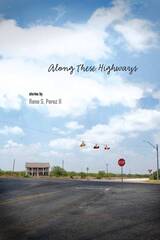
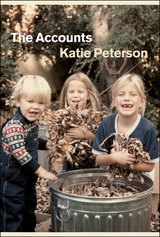
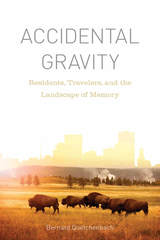
Accidental Gravity negotiates the difficult edge between a naive belief in an enduring, unassailable natural world and the equally naive belief that human life takes place in some unnatural, more mediated context. The title refers to the accidental but nonetheless meaningful nexus where the personal meets and combines with the universal—those serendipitous moments when the individual life connects to the larger rhythms of time and planet.
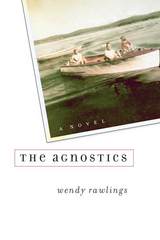
“Who knows if there’s a God? There’s us, now, and caterpillars and other insects and mulch. So thinks Stephen Wirth as he watches his marriage collapse. Between bouts of alcoholism and attempts to restore a fleet of decrepit boats, Stephen does his best to help his daughters cope with their mother having fallen in love with another woman. But growing up and making sense of the world is something the girls must do on their own, just as for their mother there is no easy way around building a new life. Set on Long Island, The Agnostics follows the Wirths through several decades as they struggle to redefine themselves and their idea of family.
Painting with a fine and delicate brush, Wendy Rawlings reveals her characters’ lives as a series of discrete moments, illuminating the intimate story of one American middle-class family.
“Already an accomplished stylist, Rawlings has given us a first novel that is at once delicate and intense. The characters are so finely engraved and their passions so recognizable, the river of their daily lives runs so broad and deep, in the end we feel not that we have merely read about them but that we have lived with them, side by side. A poignant, exquisitely focused book.”
—Sigrid Nunez, author of The Last of Her Kind
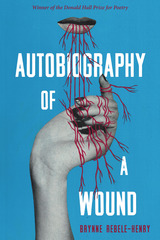
Winner of the AWP 2017 Donald Hall Prize for Poetry
In ancient fertility carvings, artists would drill holes into the woman’s body to signify penetrability, which is the basis of Autobiography of a Wound: allowing those wounds and puncture marks to speak through the fertility figures. The wounds are chronicled through letters and poems addressed to F (F stands for the fertility carvings themselves, which are being addressed as one unified deity), and A (Aphrodite, who is being referenced as a general deity of womanhood, a figurine that reappears throughout the poems, and a symbol that is referenced or portrayed in almost every fertility figurine or carving). Autobiography of a Wound reconstructs the narrative surrounding female pathos and the idea of the hysteric girl.

The massif’s landscapes are as varied as pinewoods, clay hills and prairie, but grow more abstract. In his naive way, A.M. moves through or ponders the Higgs Field, art, national and family states of emergency. From his own house to an airport, from volcano to museum, he goes foraging for images good enough to eat, for friends, for antidotes to apocalypse.
Perhaps no more human by the end, A.M. still bears his “girth and melancholy,” though having shed some of the illusions, like vestiges, with which he started. Dazed as much as sobered, he feels himself released into the world like a new habitat—however threatened. Rather, like the Pompeian who returns to her city, the Mastodon comes into his own.
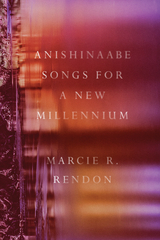
Poem-songs summon the voices of Anishinaabe ancestors and sing to future generations
The ancestors that walk with us, sing us our song. When we get quiet enough, we can hear them sing and make them audible to people today. In Anishinaabe Songs for a New Millennium, Marcie R. Rendon, a member of the White Earth Nation, summons those ancestors’ songs, and so begins the dream singing for generations yet to come. “The Anishinaabe heard stories in their dream songs,” Ojibwe author Gerald Vizenor wrote, and like those stories once inscribed in pictographs on birch-bark scrolls, Rendon’s poem-songs evoke the world still unfolding around us, reflecting our place in time for future generations.
Through dream-songs and poem-songs responding to works of theater, choral music, and opera, Rendon brings memory to life, the senses to attention—to see the moonbeams blossoming on the windowsill, to feel the hold of the earth, to hear the echo of grandmother’s breath, to lie on the bones of ancestors and feel the rhythms of silence running deep. Her singing, breaking the boundaries that time would impose, carries the Anishinaabe way of life and way of seeing forward in the world.

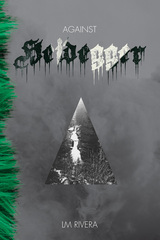
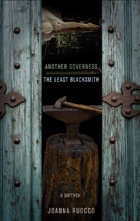
In “Another Governess” a woman in a decaying manor tries to piece together her own story. In “The Least Blacksmith” a man cannot help but fail his older brother as they struggle to run their father’s forge.
Each of the stories stands alone, sharing neither characters nor settings. But together, they ask the same question: What are the wages of being? The relentless darkness of these tales is punctured by hope—the violent hope of the speaking subject.

—Donna Stonecipher
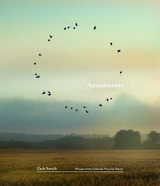
Published by the Center for Literary Publishing at Colorado State University
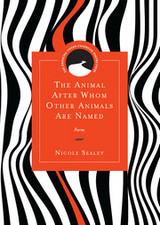
The Poetry and Poetics Colloquium, in conjunction with Northwestern University Press, is delighted to announce that Nicole Sealey is the winner of the fourth annual Drinking Gourd Chapbook Poetry Prize. The Animal After Whom Other Animals Are Named will be published by Northwestern University Press with a planned launch party at the Poetry Foundation in Chicago in January 2016.
At turns humorous and heartbreaking, The Animal After Whom Other Animals Are Named explores in both formal and free verse what it means to die, which is to say, also, what it means to live. In this collection, Sealey displays an exquisite sense of the lyric, as well as an acute political awareness. Never heavy-handed or dogmatic, the poems included in this slim volume excavate the shadows of both personal and collective memory and are, at all points, relentless. To quote the poet herself, here is a debut as luminous and unforgiving "as the unsparing light at tunnel’s end."
READERS
Browse our collection.
PUBLISHERS
See BiblioVault's publisher services.
STUDENT SERVICES
Files for college accessibility offices.
UChicago Accessibility Resources
home | accessibility | search | about | contact us
BiblioVault ® 2001 - 2024
The University of Chicago Press



